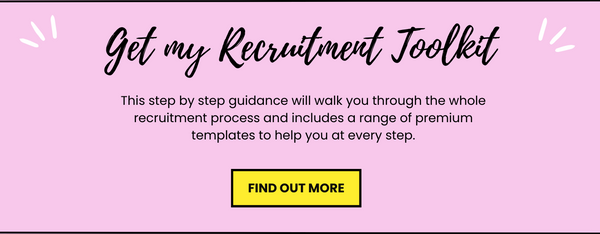5 Powerful Interviewing Techniques For Better Hires
So, you've advertised your role and now you've got some great candidates applying and you are arranging interviews to hire some top talent into your small business. Amazing! 😍
Now's the time start planning your best interview questions and deciding what information you'll need to find out to make a great hire.
Not only that, but you also need to limit your own biases and sell yourself to a prospective employee. No wonder employers feel overwhelmed.
The importance of interviewing
Interview situations should be a conversation rather than an interrogation which helps you with information gathering. A great interview technique for interviewers is to examine any key achievements listed in a candidate’s CV or cover letter and ask them about it.
This allows you to see the candidate at their best and will help you find out what they can offer to your organisation and assess if they are a good match for your job (based on what you set out in the job description).
5 Interviewing Techniques
There are different recruitment strategies and hiring techniques which work best for different types of interviews. To know how to prepare correctly for an interview, you need to be clear what type of interview you’re conducting so you can maximise the value you can get from the answer.
Here are some of the different techniques and ways you can ask questions:
#1. Open-ended questions
In a well-conducted interview, the candidate should be talking for up to 80% of the time. One way you can ensure this is to pose questions that are broad and open-ended. As well as getting the candidate to talk, this approach will also help reveal some of his or her attitudes and priorities about the topics discussed:
- ‘Tell me about…’
- ‘Could you give me your impressions of…?’
- ‘What experience have you had of…?’
- ‘Give me an example…’
#2. Previous experience
There is a considerable correlation between performance in the past and predictions of success in the future. It is, therefore, useful to gain an understanding of exactly what the candidate has done in the past and to what depth. Make sure you read their CV, and if there’s anything of specific interest that aligns what the role you have, focus on that:
- ‘Tell me about the change project you led at Company X and what results you achieved.’
#3. Behavioural
Ask the candidate to describe specific past situations where they may have used the behaviour you are trying to assess:
- ‘Tell me about a particular instance when you had to work under pressure to achieve an important deadline.’
- ‘How have you dealt with an irate customer who isn’t happy about the service they have received?’
#4. Hypothetical
This is when you ask a hypothetical question to see how they would deal with a certain problem or situation:
- ‘How would you handle a customer that tried to bribe you to get a free product?’
- How would you handle a day when everything seems to go wrong?
- When would you ask for help at work?
#5. Probing
Candidates frequently give responses that seem incomplete or appear to be ‘textbook answers’. You should draw out further information from the candidate until you are satisfied the questions have been answered.
- ‘Could you expand on that?’
- ‘What was your particular involvement with that?’
- Tell me a bit more about the outcome
The way you ask the question will steer the answer you get, so it’s worth thinking about how you can extract the information you need from the potential candidates to make an informed decision.
Be aware of your own biases
Effective interviewing enables you to hire the best person for the job.
But our brain naturally makes judgments on people. This is part of our evolution to quickly assess threats – you get your first impression of someone in just seven seconds.
Having bias is natural, but not being aware of it and letting it control your impression of interviewees won’t help you find the best candidate. Don’t deviate from your planned questions for each jobseeker so that you can make a fair comparison between them, while having a colleague observe the interview will provide another perspective and mitigate for any unconscious bias.
I'm a big fan of the horn and halo effect, which in recruitment is all about first impressions, whether they’re made on paper or when meeting face-to-face in an interview setting. As many of you know, first impressions can be incredibly deceiving and can hinder your objectivity when evaluating a candidate. Essentially, a positive first impression that leads us to treat someone more favourably and a negative first impression leads us to treat someone more negatively.
The term “the halo effect” was coined in the early 1920s by an American psychologist called Edward Thorndike. He said that 'conventionally-attractive' people tend to be perceived as being competent and successful. As a result, any negative characteristics are therefore overshadowed, such poor punctuality and communication skills, or frequently missing deadlines.
The horn effect is essentially the complete opposite of the halo effect. A common example of this is overweight people, who unfortunately are often stereotyped as being lazy, slovenly or irresponsible.
Don't try and wing it
Regardless of how good you are at talking off-the-cuff, a job interview isn't the place for a spontaneous conversation.
If you "wing it" during the interview process, you may come across as ill-prepared or not valuing the position. Remember, the job candidate evaluates you and your company culture just as you're evaluating them.
If you're time poor, invest in recruitment tools or systems to reduce the manual admin. My Interview Toolkit is designed to help you save time and hire like a professional.

HERE'S A HELPFUL LIST OF MY MOST POPULAR RESOURCES...
- Take the Leadership Quiz to uncover your natural leadership style.
- Grab my Free Guide for Busy Managers to help you save 5+ hours every week.
- Browse and download my Free HR Guides and Templates.
- Book a free consultation with Mandy here, to learn more about us working together.





